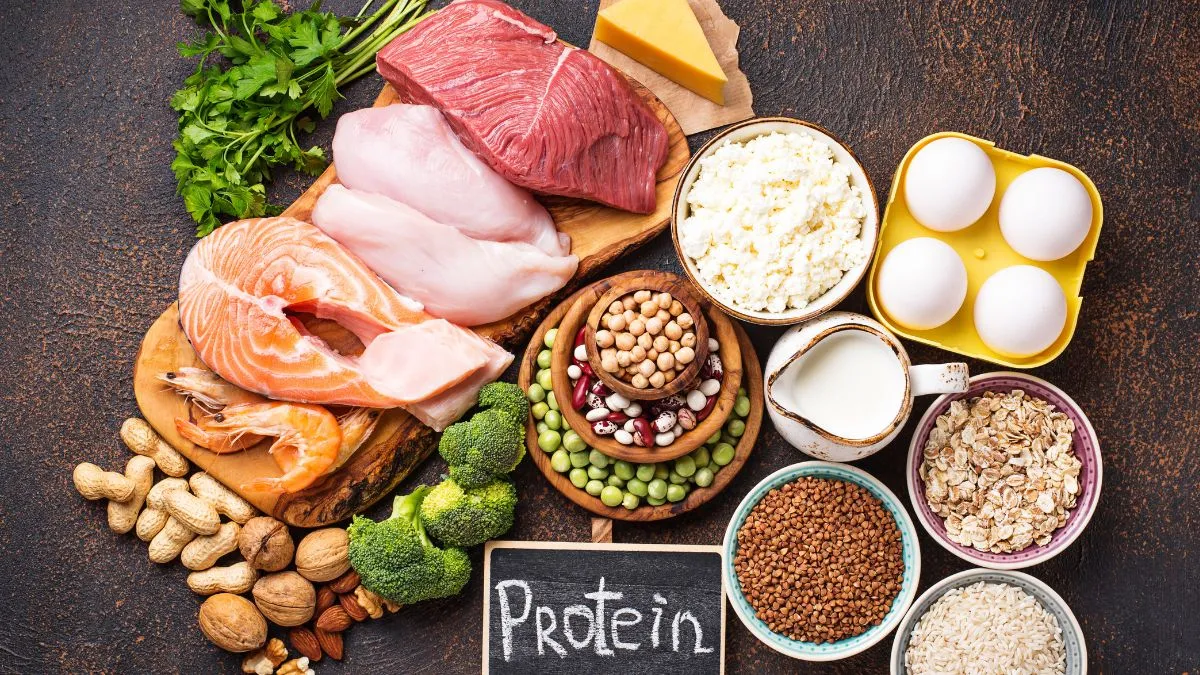- By Iram Hussain
- Mon, 12 May 2025 05:30 PM (IST)
- Source:JND
Protein is indeed a fundamental nutrient that plays a vital role in nearly every bodily function. It's often referred to as the building block of life. Every cell in the human body contains protein which is essential for repairing and building new cells, tissues and organs. Additionally, protein helps produce enzymes, hormones and other biomolecules that regulate various bodily processes. The human body can't store protein, so it's crucial to consume enough protein-rich foods daily to meet your body's needs.
Foods high in protein content include lean meats, fish, eggs, dairy products, legumes and nuts. With utmost importance, protein intake is often surrounded by various misconceptions that sabotage health goals. Here, we've listed some popular protein myths that one should stop believing immediately.
Myths About Protein
Myth: Protein Only Builds Muscles
Fact: Protein is a vital nutrient that plays a crucial role in overall body functioning, beyond just building muscles. It's essential for bones, hair, ligaments and joints and even influences LDL and HDL cholesterol levels. Protein helps produce antibodies that fight off infections and diseases.
Myth: Plant Proteins Are Not Good
Fact: Plant proteins are often misunderstood as being inferior but that's simply not true. With a little planning, a plant-based diet can easily meet and exceed protein needs, offering added benefits like fibre, antioxidants and lower saturated fat.
Myth: Eat Protein Only After Workout
Fact: Having a good source of protein at every meal is actually more effective than overloading on protein right after exercise. This consistent intake helps build and repair tissues throughout the day, making it a crucial part of overall health and fitness rather than just a post-workout necessity.

Stop believing in these protein myths (Image Credits: Canva)
Myth: Protein-Rich Diet Harms Kidneys
Fact: The notion that high protein is bad for your kidneys is largely a myth, especially for healthy individuals. Research shows that there's no strong evidence linking high protein intake to kidney harm in people without pre-existing kidney disease. In fact, a balanced high-protein diet can be safe and even beneficial for most people.
Myth: Only Animal Protein Meets The Requirement
Fact: The idea that only animal products like meat, eggs and dairy provide complete proteins is a myth. Plant-based options such as quinoa, soy and buckwheat are also complete proteins, containing all essential amino acids. Additionally, combining foods like rice and beans can easily meet protein needs.
ALSO READ: Creatine vs Protein: Which Supplement Should You Choose For Building Muscle?
Disclaimer: This content, including suggestions and advice, provides generic information only. It is in no way a substitute for qualified medical opinion. Always consult a specialist or your own doctor for more information before making any drastic changes in your lifestyle.


